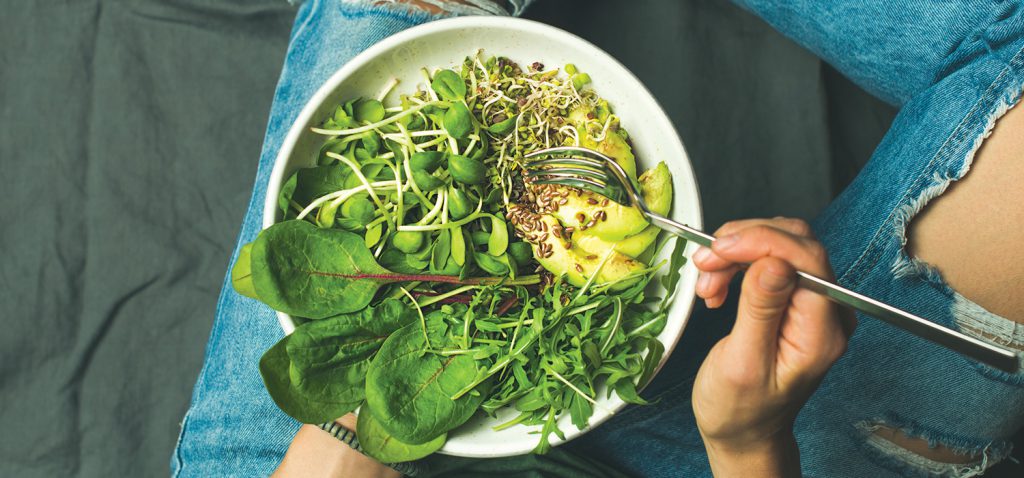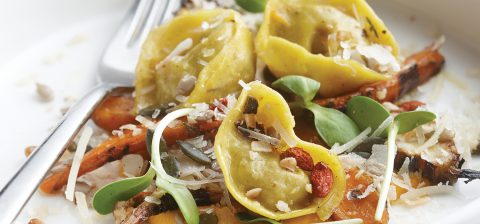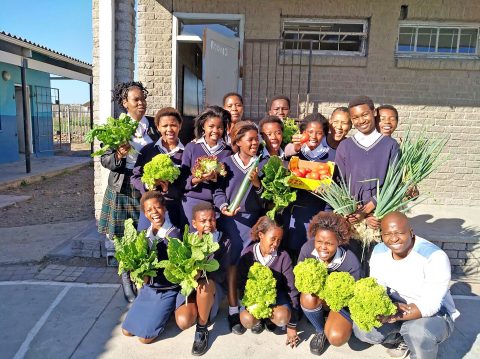Sunday Times Healthy Times
Firmly Planted
On 1 November 1944 British woodwork teacher Donald Watson coined the term “vegan” by merging the beginning and end of the word “vegetarian”, and founded the Vegan Society with 25 fellow activists.
Veganism has come a long way since 1944. People adopt the lifestyle for reasons beyond the ethics of animal husbandry, as report after report confirms both the health benefits of switching to a plant-based diet, and the impact it can have on the global environment.
In August, the United Nations’ Intergovernmental Panel on Climate Change highlighted the effects of the meat industry and urged Western consumers in particular to cut back. Last year, a study published in the journal Science calculated that meat and dairy provide just 18% of calories consumed, but production uses 83% of farmland and generates 60% of the greenhouse gas emissions related to the food chain.
Many claim that reducing or eliminating meat consumption is the single biggest thing you can do to reduce your carbon footprint, and the New York Times recently reported that in the United States, one in four 25- to 34-year-olds now self-identify as vegetarian or vegan.
While veganism was once a minority within a minority, this social subset is soaring, especially among millennials. Numbers can be converted into cash. In 2017 Forbes published an article titled “Here’s why you should turn your business vegan”.
Is it any wonder then that 2019 was declared the Year of the Vegan by the influential Economist magazine?
Veganism in SA
In South Africa almost all our restaurant chains now offer at least one viable vegan menu option. Our supermarkets carry multiple vegan ready-meal ranges. Even in these tough economic times, numerous exclusively vegan cafés, bistros and restaurants have opened and thrived. The global Veganuary Campaign (which seeks to encourage carnivores to try the plant-based lifestyle for the month of January), noted that South African signups were the fifth highest in the world.
Tumelo Mojapelo is head of content for SA-based think tank Flux Trends. “A plant-based diet is a fast-growing trend among South African young people as they are exposed to more information through Google and social media,” Mojapelo says. “They are also more aware of the impact that their diet or lifestyle choices have on the environment because they are inheriting the results from the way we have been living in the past.”
But how important are observations pertaining to posh-nosh and international social media campaigns? Do they tell us anything about the average South African situation? The vegan options described above rely heavily on expensive animal product substitutes, many of which are economically and/or culturally inaccessible to most South Africans.
Before we dismiss vegan diets as a foodie fad for the rich, spoilt and Eurocentric, let us remember that sipping soy lattes or braaiing seitan sausages in the suburbs is not the only way to be a plant-based person. University of the Witwatersrand vegan food researcher Brittany Kesselman reminds us that “there is a perception that eating lots of meat is the South African traditional diet, but the historical reality is that cows were traditionally held as wealth and rarely eaten”.
“Our ancestors weren’t entirely vegan (particularly because sour milk was a major dietary feature),” says Rustenburg-based dietician Mpho Tshukudu. “But consuming meat was mostly about occasional rituals, not everyday eating. Our people have always intuitively understood that meat was not the only way to get enough protein. Foods such as dikgôbê (a delicious Setswana mix of whole-grain sorghum and sugar beans), Venda-style tshidzimba (groundnuts, bean and corn) or Xhosa umngqusho (samp and beans) show us that our ancestors always engaged in nutritionally beneficial, vegan-friendly food combined within traditional recipes.”
The recipes described by Tshukudu are vegan, nutritious, inexpensive and proudly South African – which just goes to show that whatever your price points or preferences there is a Mzansi-style vegan ingredient, recipe and/or restaurant to suit every palate and wallet.
Fast fact: Vegan Society founder Donald Watson stopped eating meat as a child after witnessing a pig being slaughtered on his family farm. His brother and sister also became vegans. His mother – a pig farmer – said she “felt like a hen that had hatched a clutch of duck eggs”.






 Sign-up and receive the Business Media MAGS newsletter OR SA Mining newsletter straight to your inbox.
Sign-up and receive the Business Media MAGS newsletter OR SA Mining newsletter straight to your inbox.